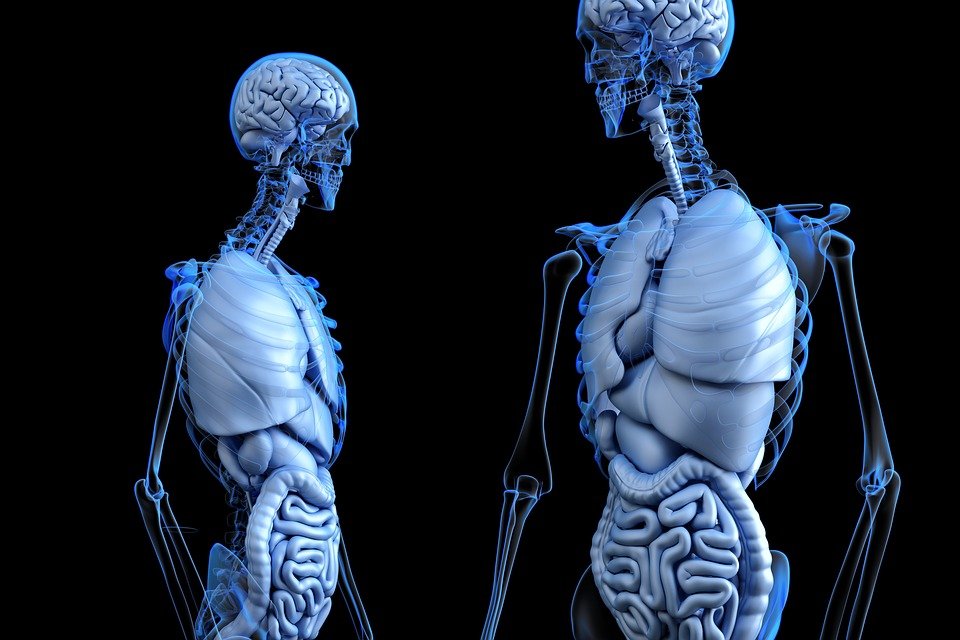
Cholesterol is a type of fat that is produced by the liver and found in the bloodstream. There are two types of cholesterol, and they’re about as far apart as you can get: HDL (high-density lipoprotein) and LDL (low-density lipoprotein)
- HDL is often referred to as “good” cholesterol. It grabs up LDL in the bloodstream and carries it back to the liver to be processed and removed as waste.
- LDL is the bad kind and can build up in artery walls if levels become too high. Eventually, this buildup can set the stage for heart disease, heart attack, or stroke.
VLDL cholesterol is a type of cholesterol that carries triglycerides through the bloodstream. Triglycerides are fats that come from the food we eat. High levels of these fats in your bloodstream can cause problems similar to LDL cholesterol.
What Do My Cholesterol Numbers Mean?
The routine blood test that checks for high cholesterol, called a lipid profile or lipid panel, reports your results as four components:
- Total cholesterol (the sum of your LDL, HDL, and 20% of your triglyceride level)
- LDL cholesterol
- HDL cholesterol
- Triglycerides
This text suggests that doctors typically recommend keeping total cholesterol below 200 mg/dL and LDL cholesterol below 100 mg/dL. However, if you have existing heart problems, your LDL cholesterol should be even lower, with a goal of below 70 mg/dL. This is because when cholesterol levels are higher, the extra fats can start to build up in your arteries, causing blockages that could lead to heart disease, heart attack, or stroke.
The numerical ranges for each component are as follows: Your doctor interprets your numbers to determine if you have high cholesterol (or high triglycerides).
Total Cholesterol:
- Below 200 mg/dL is the goal.
- 200-239 mg/dL is borderline high = time to take action.
- 240 mg/dL and above is high = a comprehensive plan is a must.
LDL Cholesterol:
For people without heart disease or an elevated risk of developing heart disease:
- Below 100 mg/dL is optimal.
- 100-129 mg/dL is near optimal.
- 130-159 mg/dL is borderline high.
- 160-189 mg/dL is high.
- 190 mg/dL and above is very high.
For people with heart disease or coronary artery disease:
- Below 70 mg/dL is optimal.
- 70-99 mg/dL is near optimal.
- 100-159 mg/dL is high.
- 160 mg/dL and above is very high.
HDL Cholesterol:
- Below 40 mg/dL for men and below 50 mg/dL for women is considered poor.
- 40-59 mg/dL in men or 50-59 mg/dL in women is considered good.
- 60 mg/dL and above is ideal for everyone.
Triglycerides:
- Below 150 mg/dL is optimal.
- 150-199 mg/dL is borderline high.
- 200-499 mg/dL is high.
- 500 mg/dL and above is very high.
After taking into account various factors such as your medical history and gender, your doctor will determine if you have high cholesterol and the best way to manage it.
Why Is Treating High Cholesterol So Important?
If you don’t do something to stop excess cholesterol, it will keep building up in your bloodstream and also cause plaque to form on the walls of your arteries.
The presence of these plaques can indicate that the arteries are narrowing, which can then lead to more serious conditions such as heart attacks or strokes—especially when cholesterol levels are already high.
The goal of high cholesterol treatment is not simply to lower cholesterol levels, but also to raise levels of good HDL cholesterol.
The best high cholesterol treatment for you will be based on a variety of personal factors. These include:
- Whether your cholesterol is borderline high, high, or very high
- Whether you have a personal or family history of high cholesterol and heart disease
- Your weight
- Whether you smoke
There is not a one-size-fits-all solution when it comes to cholesterol. If your cholesterol is only slightly high and you do not have any other risk factors, then making changes to your lifestyle may be enough to see a difference. However, if the changes to your lifestyle are not having the desired effect on your cholesterol levels, your doctor may recommend taking cholesterol medication.
If your family has a history of high cholesterol or you have several risk factors for heart disease, your doctor may recommend a combination of medication and lifestyle changes to keep your heart healthy.
What Are the Treatments for High Cholesterol?
Your doctor will likely start by recommending small changes to your daily routine, rather than more aggressive treatments. These changes can have a big impact on your health, and they are the same principles that are known to promote a long, healthy life. For example, you may discuss changes to your diet or increasing your exercise.
Limit Saturated Fats
- Foods high in saturated fat have the greatest impact on raising cholesterol levels, according to the Mayo Clinic in Rochester, MN. Saturated fat is primarily found in red and processed meats, full-fat dairy, and a few plant-based foods:
- Beef
- Salami and other cured deli meats
- Pork
- Poultry with the skin
- Lamb
- Butter
- Cheese
- Whole or 2 percent dairy
- Cream
- Some baked goods and fried foods
- Palm oil
- Coconut oil
The American Heart Association recommends not consuming more than 5-6% of your daily calories from saturated fat, which would be 13 grams per day on a 2,000-calorie diet.
Curb Trans Fat
Trans fats are a type of fat that can contribute to high cholesterol levels. Trans fats are found in some packaged foods, even though the U.S. Food and Drug Administration has banned their use in most packaged foods. Check the ingredient list on packaged foods to see if they contain any trans fats.
Trans fats may still be found in the following types of foods:
- Shortening
- Refrigerated dough
- Fried foods
- Stick margarine
- Nondairy coffee creamer
- Baked goods
- Microwave popcorn
- Frozen pizza
The goal is to consume as little trans fat as possible.
Enjoy Eggs, if You Want
Although dietary cholesterol found in eggs has been debated for years in regard to its effects on heart health, current research suggests that for the majority of people, consuming up to 7 eggs a week will not put them at risk for heart disease. Because studies are still ongoing, it is advised by the Mayo Clinic to limit egg intake to no more than 1 egg per day. If you are looking to get protein without cholesterol, you can eat just egg whites.
Eat More Omega-3s
A recent analysis in the British Medical Journal has shown that foods rich in omega-3 fatty acids, such as walnuts, flaxseeds, and fatty fish, have numerous heart-healthy benefits. These benefits include lower triglycerides, higher HDL cholesterol, reduced blood pressure, and reduced risk of dying from heart disease.
Fish is a great protein source and the American Heart Association recommends eating two 3.5-ounce servings of fish every week. Fish high in omega-3 fatty acids include:
- Salmon
- Herring
- Mackerel
- Sardines
- Albacore tuna
Be sure to have your fish baked, grilled, or very lightly fried without breading.
Fill Up on Fiber
Soluble fiber is especially helpful for high cholesterol because it binds to LDL cholesterol in the intestine and removes it from the body. Good choices for soluble fiber include:
- Barley
- Oatmeal
- Quinoa
- Beans
- Broccoli
- Brussels sprouts
- Carrots
- Green beans
- Sweet potatoes
- Apples
- Bananas
- Pears
Fuel Up on “Whole” Foods
Diets rich in vegetables, fruits, whole grains, and lean sources of protein are associated with lower weights and improved cholesterol levels.
Although it may appear daunting to make all these dietary changes at once, know that even making one small change can have a large impact. Master one diet tweak before moving on to the next. If you need assistance putting this advice into practice, speak to your healthcare provider about recommending a registered dietitian to help you lower your cholesterol levels even more.
5 FAQs About High Cholesterol Treatment, Answered
- How will I know if I need medication to treat my cholesterol?
Nowadays, most cardiologists will use the Atherosclerotic Cardiovascular Disease (ASCVD) Risk Calculator to decide whether you need cholesterol-lowering medication, as stated by Peter Schulman, MD – an attending cardiologist and professor of medicine at UConn Health in Farmington. The ASCVD Risk Calculator estimates your 10-year risk of coronary artery disease, heart attack, and stroke by taking into account different factors such as your age, blood pressure, and levels of LDL, HDL, and total cholesterol. Other factors that the calculator takes into account are whether you have diabetes or if you’re being treated for high blood pressure. Generally, if your risk is 7.5 percent or more, your doctor will suggest cholesterol-lowering drugs, as noted by Schulman.
- How often should I have my cholesterol levels tested?
The AHA Recommends that your doctor test your cholesterol levels 4 to 12 weeks after you start a new treatment plan, and then monitor your levels every 3 to 12 months. Your doctor will focus on the percentage reduction of your LDL levels, rather than the levels themselves, to see how well your new treatment is working.
- Are there side effects of cholesterol medication?
Statin drugs are most commonly associated with muscle pain, says Schulman. According to a review published in March 2018 in the journal Expert Review of Clinical Immunology, approximately 20 percent of people taking statins report experiencing some level of muscle pain, which can range from mild soreness or tiredness to more severe pain that impedes daily activities. Very few cases of muscle-damaging rhabdomyolysis or liver inflammation have been linked to statin use, but the drugs’ labels include a U.S. Food and Drug Administration warning of potential memory loss or confusion, particularly in older adults. Schulman says that for people 85 years of age or older, the risk of memory loss may outweigh any benefits associated with lower cholesterol. The risks of side effects from taking statins are low and vary from person to person. You should talk to your doctor about the benefits of taking these drugs, which lower cholesterol and help to prevent heart attacks and strokes, to determine whether they are worthwhile for you.
- Can I stop taking cholesterol medication once my LDL level comes down?
According to the National Health Service, you will likely be on a statin drug for the rest of your life once your doctor prescribes it. This is because your LDL level will rise within a few weeks of stopping the medication. If you are experiencing side effects, your doctor may adjust your dose or switch you to another statin or another medication. Schulman explains that studies suggest you can still get about 70 percent of the cholesterol-lowering benefits of statins even if you only take them two or three times per week instead of daily. If you have or develop other health conditions that make statin use risky, such as liver disease, your doctor may prescribe an alternative, including injectable PCSK9 inhibitors, which are administered using a small needle every two weeks. You and your doctor must create a plan to stop taking statin medication safely. It is never safe to stop taking your cholesterol-lowering medication without talking to your doctor.
- Might my treatment plan change if I experience a complication, such as a heart attack?
The American Heart Association (AHA) has stated that, while cholesterol-lowering drugs do reduce the risk of a heart attack or stroke, they are not a guarantee against either of these happening. Suppose someone taking cholesterol-lowering medication has a heart attack or stroke. In that case, it is possible that the drugs are not working effectively on their own, or that the individual has developed another health condition that raises their risk of heart disease (such as high blood pressure or type 2 diabetes). In either case, it is probable that a change in the treatment plan will be required, which may involve adjusting the dose of statins or changing the medication entirely, according to Schulman.













